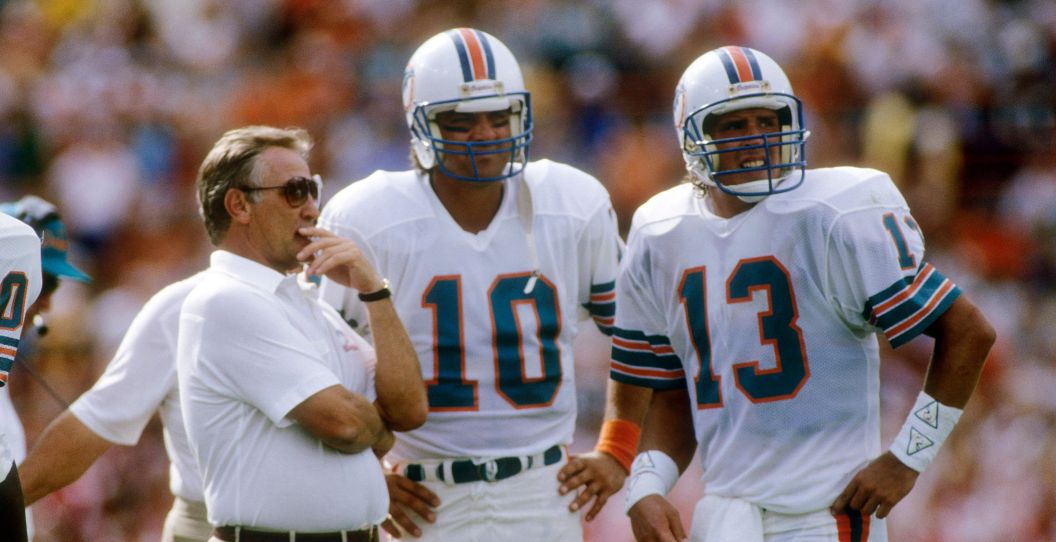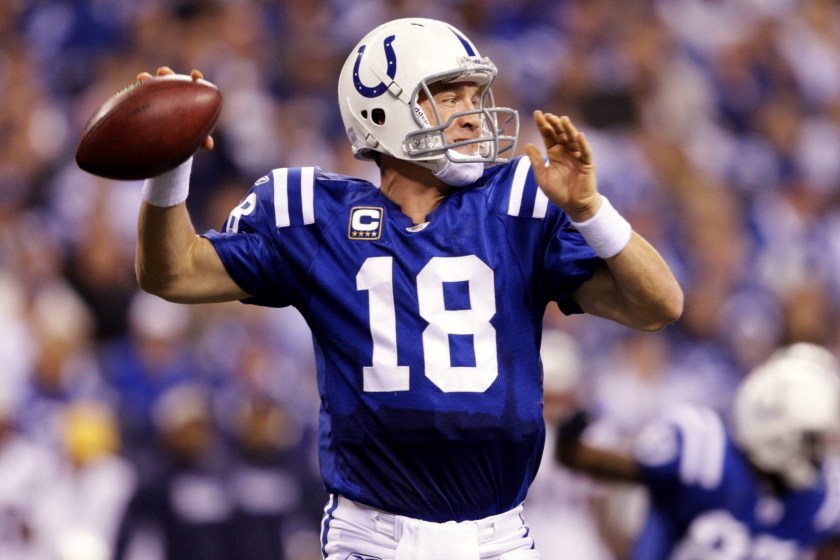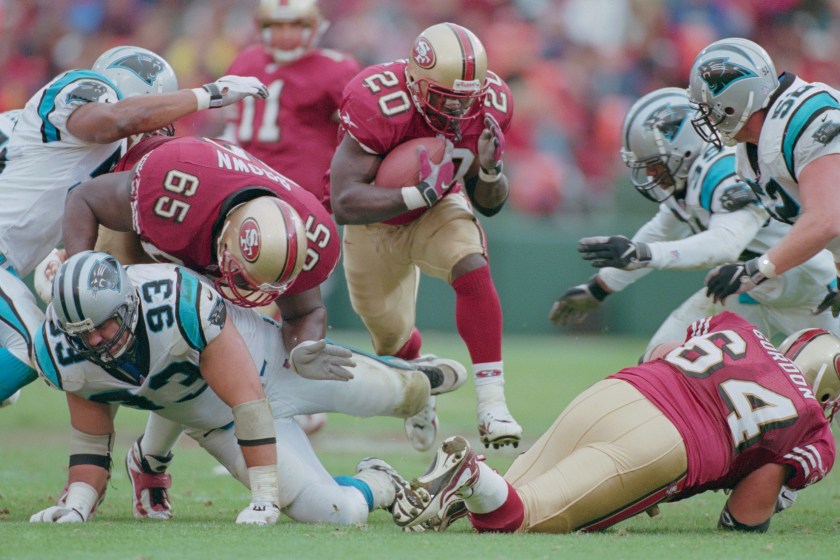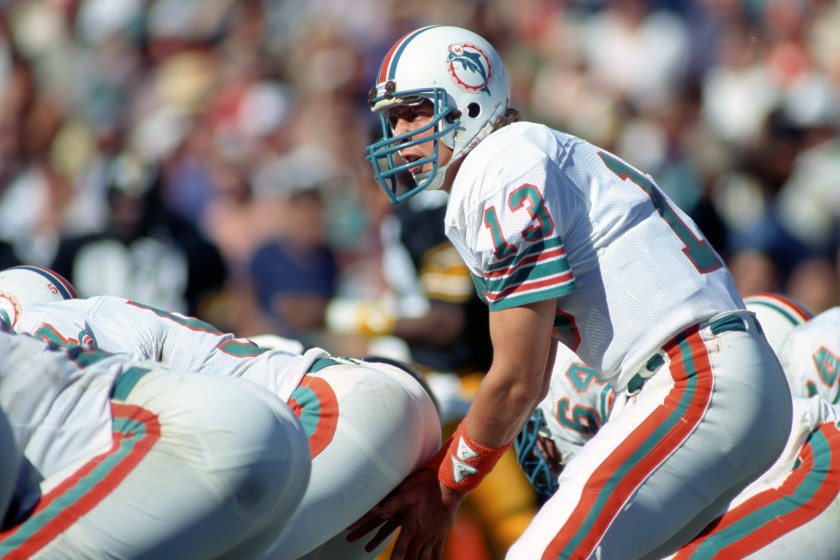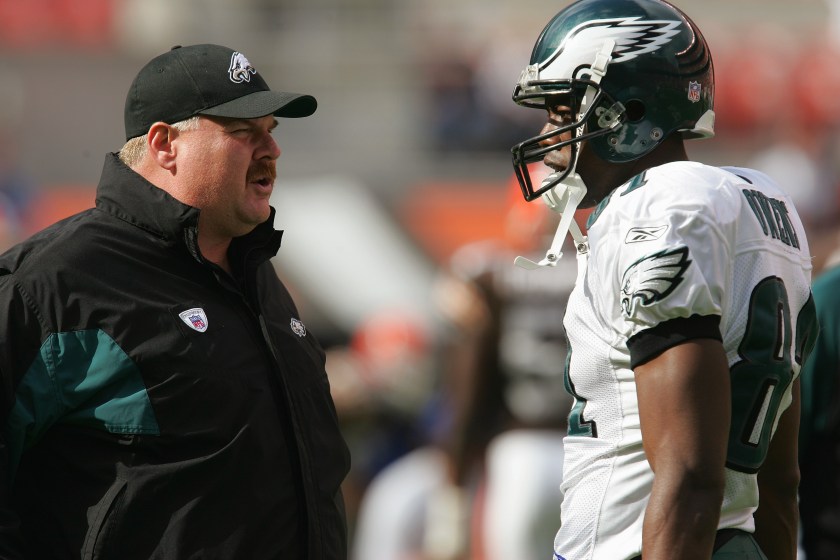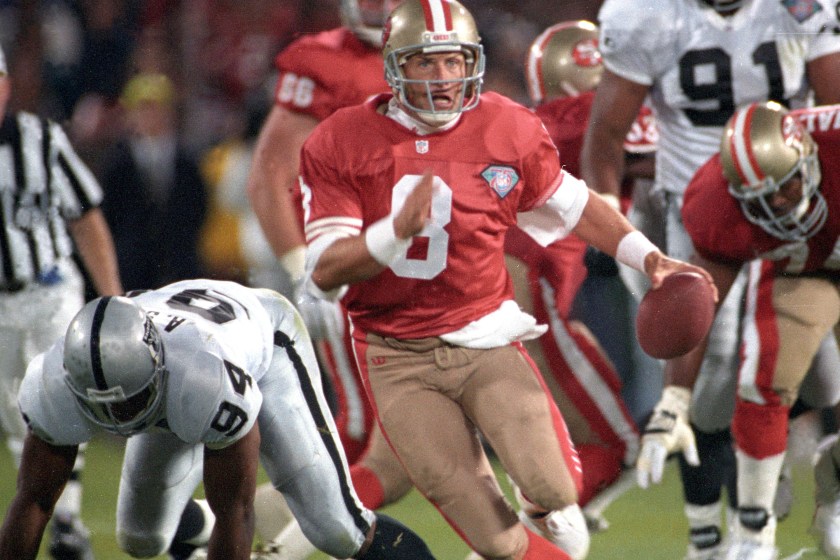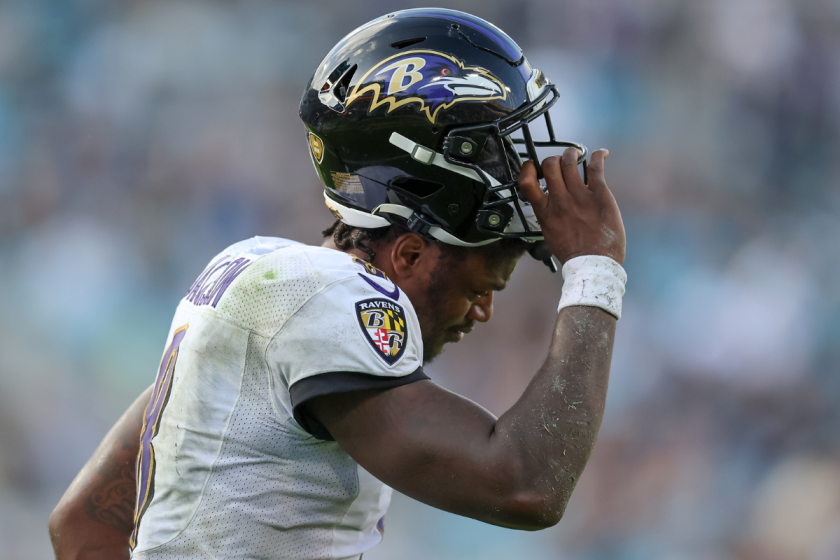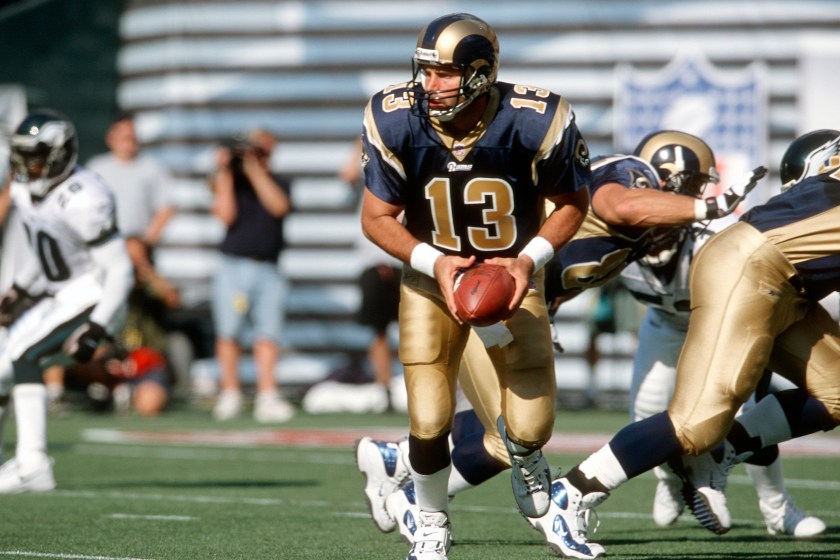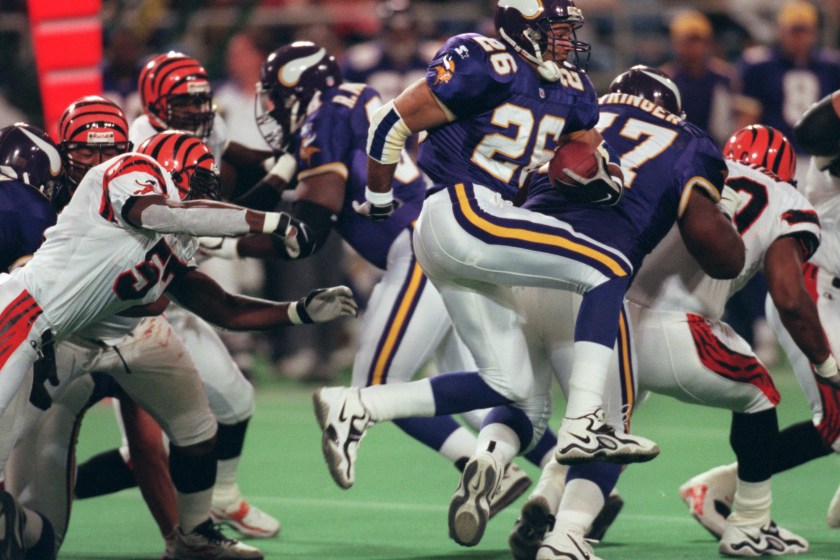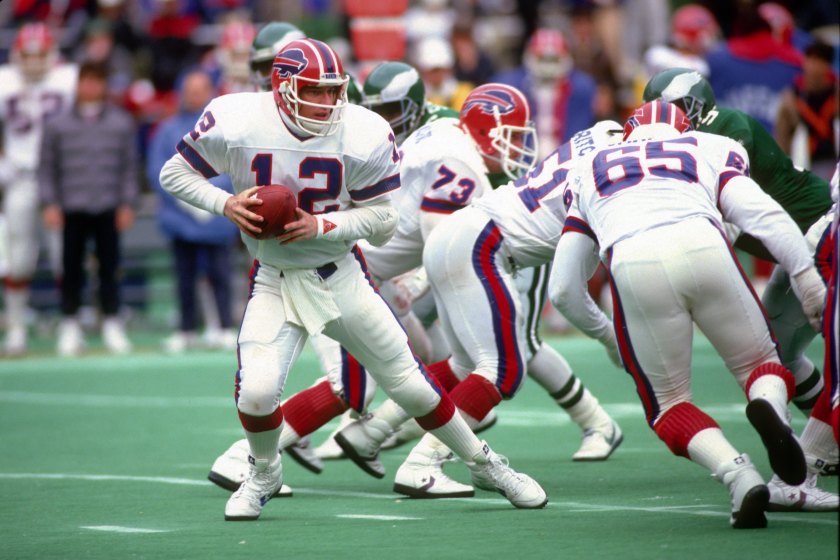Look, only one National Football League team can win the Super Bowl each year. And following Monday night's clash between the leaders of each conference, the Baltimore Ravens and San Francisco 49ers, it hit me that one of these terrific teams isn't going to win the Super Bowl this year, even if they do see each other again in February.
Videos by FanBuzz
In a league consisting of 32 NFL teams in which 12 make the playoffs, plenty of great, historical teams fell short since Bart Starr and the Green Bay Packers won the first Super Bowl in 1967. Numerous Hall-of-Fame quarterbacks finished their careers without a Super Bowl ring, too. Guys like Dan Marino, Fran Tarkenton and Jim Kelly never hoisting the Lombardi Trophy at the end the season isn't right, but that's the nature of the game. Not everyone can win.
That being said, there are an endless amount of terrific teams in the Super Bowl era that didn't win an NFL championship. From as far back as Don Shula's 13-1 Baltimore Colts losing to Joe Namath and the New York Jets of the AFL to as recent as Lamar Jackson's 2019 Ravens, these are the 10 best teams that didn't win the Super Bowl.
10. 2009 Indianapolis Colts - 14-2, Lost Super Bowl
Those Colts teams were loaded. Fours years after stomping the Chicago Bears as they racked up five turnovers, Peyton Manning was Peyton Manning, and he had Reggie Wayne and Dallas Clark at his disposal. Defensive stars Robert Mathis and Dwight Freeney combined for 23 sacks that season. However, another future Hall-of-Famer was simply better than he was in the Super Bowl: Drew Brees.
Of course, maybe the New Orleans Saints' fortune changes without Tracy Porter's late pick-six.
9. 1998 San Francisco 49ers - 12-4, Lost in Divisional Round
This season really marked the end of the 49ers' remarkable post-season run in the 1980s and 1990s. Steve Young, Jerry Rice and Terrell Owens teamed up for a lethal passing game, and running back Garrison Hearst rushed for a franchise record 1,570 yards. Had Hearst not injured his ankle in a playoff game versus the Atlanta Falcons, maybe this team goes on to win a title.
8. 1984 Miami Dolphins - 14-2, Lost Super Bowl
RELATED: The 15 Worst Quarterbacks in NFL History Were Painful to Watch
It's a crying shame that Dan Marino was never able to secure a Super Bowl win in Miami, especially with all the success Don Shula had prior to his arrival. The 1984 season was all his, too. Marino's 5,084 passing yards easily led the league and no one other passer even came close to his 48 touchdowns. Plus, the Dolphins featured two receivers with more than 1,300 receiving yards: Mark Clayton and Mark Duper.
Marino blew past the Seattle Seahawks and Pittsburgh Steelers in the AFC Championship Game only to choke in the big game against Joe Montana's San Francisco 49ers. The 'Phins haven't sniffed a Super Bowl since. Maybe 2023 is their year, though.
7. 2004 Philadelphia Eagles - 13-3, Lost Super Bowl
I'm glad Andy Reid finally got his Super Bowl ring with the Kansas City Chiefs, because he should've had one in '04. After going to the NFC Championship Game in three straight seasons before that, the Eagles finally earned a trip to the Super Bowl this season. Donavan McNabb had Terrell Owens and Brian Westbrook surrounding him, plus a stout defense led by Brian Dawkins, Jevon Kearse and Michael Lewis.
Like most teams on this side of 2000, though, their season ended against the New England Patriots in the Super Bowl. At least they got revenge 13 years later in Super Bowl LII, giving Eagles fans something to lord over all the Jets fans in New Jersey.
6. 1992 San Francisco 49ers - 14-2, Lost NFC Championship
It's unfortunate the 49ers (or anyone) had to play the Dallas Cowboys in the 1990s, because this team was just as good on paper. Quarterback Steve Young was brilliant and wide receiver Jerry Rice and running back Ricky Watters rounded out a complete offense that was tops in the NFL. It didn't help that the 49ers turned the ball over four times in the conference championship game against Troy Aikman's Cowboys.
5. 2019 Baltimore Ravens - 14-2, Lost in Divisional Round
Lamar Jackson broke Michael Vick's single-season quarterback rushing record and became the second quarterback to unanimously win the NFL MVP (after Tom Brady) at just 23.
He had a 1,000-yard running back in Mark Ingram at his disposal, and John Harbaugh's offense put up 530 yards per game in the AFC North. The Ravens were Super Bowl favorites until Ryan Tannehill, Derrick Henry and the Tennessee Titans ended their magical season in the divisional round. But hey, look on the bright side, they didn't lose in the Wild Card round.
4. 2001 St. Louis Rams - 14-2, Lost Super Bowl
The 'Greatest Show on Turf' was truly a sight to behold. The Rams at one point won three straight MVP awards (Kurt Warner in 1999, 2001 and Marshall Faulk in 2000) and were favorites to win the Super Bowl two years after Warner's first Super Bowl appearance.
Even with wide receivers Isaac Bruce and Torry Holt and an improved defense, the Rams lost in the Super Bowl to Tom Brady's New England Patriots on a last-second field goal by Adam Vinatieri. The St. Louis Rams dynasty didn't last long, but it most definitely should've included another title. And now that they're the "Los Angeles Rams" another St. Louis Super Bowl doesn't appear to be in the cards.
3. 1998 Minnesota Vikings - 15-1, NFC Championship
Say what you want about Minnesota's Super Bowl drought, but at least they're not the Cleveland Browns. But still, the 1998 Vikings fell short of leaving their troubles in the dust against the Falcons in the NFC Championship game, continuing their membership in the "No Super Bowl Wins" Club.
Imagine quarterbacking a team with rookie wideout Randy Moss to your right and veteran Cris Carter to your left. That's what Randall Cunningham was working with in 1998, and it's the reason the Vikings had the best passing attack in the league in 1998. Throw in running back Robert Smith's 1,100-yard season and you wonder how this team didn't win it all.
They went 15-1 in the regular season and were all but set for their matchup against John Elway and the Denver Broncos in the Super Bowl. However, they fell to the Atlanta Falcons in the NFC Championship Game after Gary Anderson's missed field goal left the door open for an overtime shocker.
2. 1990 Buffalo Bills - 13-3, Lost Super Bowl
Bills fans, look away. The Bills went to (and lost) four straight Super Bowls beginning with the 1990 season. None were harder to swallow than this one. Quarterback Jim Kelly led the NFL in passer rating, Thurman Thomas rushed for nearly 1,300 yards, and the defense featured three Pro Bowl linebackers and Hall-of-Fame defensive end Bruce Smith, who tallied 19 sacks that year and won Defensive Player of the Year.
Everyone remembers how this one storybook season ended. The Bills annihilated the Los Angeles Raiders in the AFC Championship game. Then kicker Scott Norwood's last-second kick sailed wide right against the New York Giants in the Super Bowl. The next three Super Bowl appearances didn't play out much better for the Bills, as they lost to the then-Washington Redskins the following year and then lost back-to-back Super Bowls to the Dallas Cowboys. Maybe Josh Allen will avenge the Kelly years.
1. 2007 New England Patriots - 16-0, Lost Super Bowl
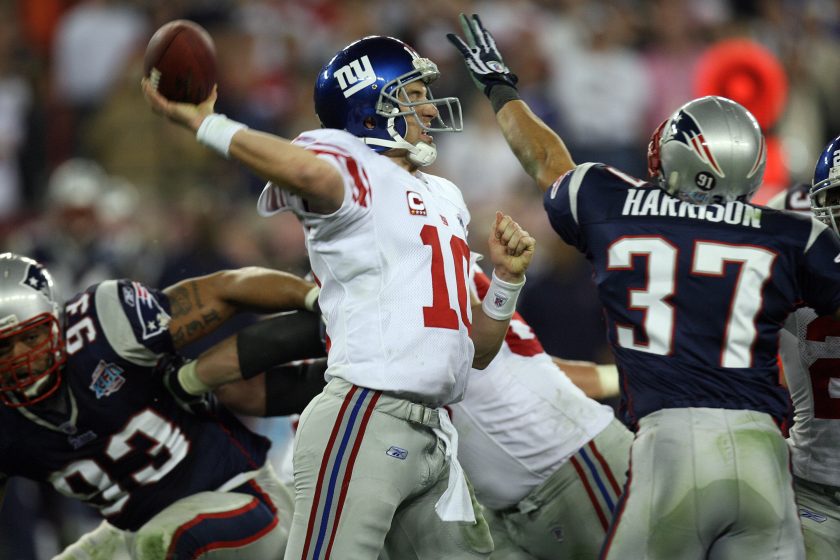
Photo credit should read GABRIEL BOUYS/AFP via Getty Images
The 2007 Patriots were unstoppable. Tom Brady led them to perfect 16-0 regular season record, the first time that had happened since the 1972 Miami Dolphins. With wide receivers Randy Moss (who set an NFL record with 23 touchdowns) and Wes Welker (112 receptions), Brady led an offense that scored a ridiculous 36.8 points per game, more than any other team in the NFL.
New England, however, fell victim to Eli Manning and the New York Giants in the Super Bowl. Don't act like you forgot about David Tyree's 'helmet catch' that helped ruin Brady's perfect season. I'd say head coach Bill Belichick was just fine considering he won six Super Bowl title games regardless. Brady went on to play in another with the Tampa Bay Buccaneers.
Being a fan of one of these teams probably sucked, but at least you're not rooting for one of the NFL franchises to have never won a Super Bowl.
